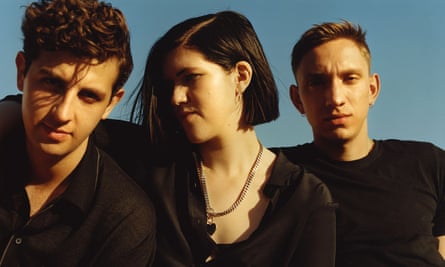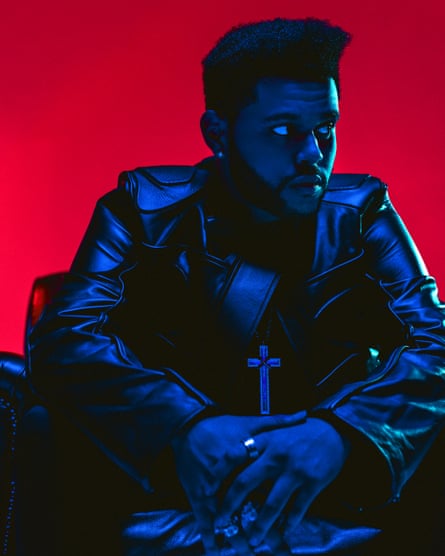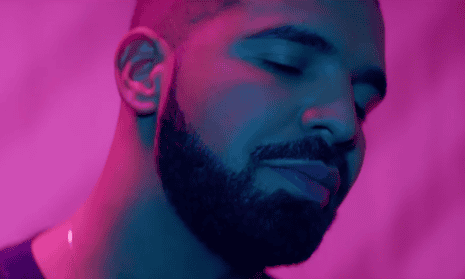Towards the end of his double album Scorpion, Drake confirms the sting in his tale; something that has defined him as the pop star of his age. Midway through the song Final Fantasy, in which he has imagined the luckless ways in which a hookup might turn out for him, he opines: “I hope that the apocalypse is the only thing that doesn’t come.” This is not an adroit turn for the artist. He has always equated sex with the chaos of the world, a notion that talks directly to fans. His sex is frequently tinged with the dolorous.
The combination of ecstatic euphoria and introspective melancholy – the good, the bad and the ugly of sex – may yet turn out to be the defining cultural trope of our times. Let’s call it “sad and sexy”, to misquote the title of Lykke Li’s recently released fourth album. While baby boomers and Gen X-ers wrestle with the sexual catastrophes of yore (such as Yewtree and #MeToo), millennials are finding that, in popular culture, the joy of sex has been supplanted by the retelling of its nihilistic woes. In 2018, “sexy” does not necessarily equate to being turned on; it connects to more complicated behaviour and emotional states.

Seven years before Scorpion, Drake shifted down gears for Marvin’s Room, the laconic first single from his Take Care album. It was a detailed, frank, eerie prognosis on the oblivion contained in the lows of assumed highs. “I’ve had sex four times this week, I’ll explain,” he sang regretfully, on a song where he drunk-dials an ex in a desperate attempt to reunite with his pre-fame self (“Are you drunk right now?” she asks, rendered as a ghostly voicemail). In Marvin’s Room, sad/sexy found its Anarchy in the UK and Smells Like Teen Spirit in swift succession. Meanwhile, Lana Del Rey kickstarted the cultural decade with one of its defining songs, introducing her career with Video Games, an opiate ode to blank, distracted behaviours in which sex dripped slowly, beatless through each groove. Drake and Lana became the King and Queen of sad/sexy designate, Michael Jackson and Madonna dialled right down to a new tempo of arresting inertia.
As the decade progressed, sad/sexy spread everywhere: the melancholy libido pulsing through the music of the Weeknd, James Blake and the xx (Intro became ubiquitous), you could hear it in the mumbled force of the self-styled Scandinavian sad rappers such as Yung Lean and Spooky Black. Gay culture was gifted a sad/sexy icon in Frank Ocean, who wrote a mini-anthem to the restless dissatisfaction of pharmaceutical cold coupling with Novocaine – a kind of dress rehearsal for sad/sexy’s own three-tier Bohemian Rhapsody, Channel Orange’s Pyramids. The boyband milieu gained its own sad/sexy pinup, too, as One Direction lost their resident weed magnet, Zayn Malik, who went on to pick up the sad/sexy cues of his immediate heroes – Drake and the Weeknd – in Pillowtalk, hooked by the none-more sad/sexy parentheses of “fucking and fighting”.
On TV, “Netflix and chill” took on a decidedly icy flavour with the streaming service’s young adult drama 13 Reasons Why, drawing a controversially direct continuum between suicide and teenage sex, while in cinemas the most popular softcore erotica since Emmanuelle arrived in the form of BDSM trilogy Fifty Shades of Grey, desaturating copulation of its Technicolor joy, beginning with the title.

In the 2010s, sex is a complicated business. Too much sex and you’re just another lonely rapper sitting ponderously on a throne you expected to perhaps feel a little hornier on; not enough and you are standing against the propulsive tenets of the age. The purgatory in between? That is the tricky part to which culture has collectively taken its musical, televisual and cinematic scalpel. The hot mess of Tracey Emin’s bed is now everywhere.
It is logical to draw a link between the dominance of sad/sexy and the after-effects of the accessibility of pornography online: rejection, inferiority, performance anxiety, ennui. The digital age means that it has never been easier to find sex, online and IRL. App culture has shorn the mating game of its ritualistic playfulness, lending it all the gallant romance of filling up the tank at Texaco or ordering from Domino’s. A new repetitive strain injury has been identified in “Tinder Finger”, hard won from the scrolling left of a rejected stream of two-dimensional sex-applicants on whose suitability we evaluate in a split second.
If a generation has learned to look at sex primarily as a quick fix, like aspirin or a Subway, it is pop culture’s job to investigate the fallout. Those who have risen admirably and in depth to the challenge have become superstars of their generation. We live in an age of transparency and new subterfuge online. Something has shifted underfoot. To understand life, love and its driving appetites in times of vast metaphysical turbulence, you cannot help but put a finger in the fire. The first generation of youths to define themselves as teenagers turns 70 at the end of this decade; just wait until all the magnetic documenters of sad/sexy start ascending into their Viagra years. That’s when the fun will really start.
Four classics of the sad and sexy genre …
Frank Ocean
Pyramids
A multilayered nine-minute opus to the absolute desperation of a lap-dancing club experience doubles as Frank’s introductory coming-out epistle.
The xx
Say Something Loving
Weak? Nervous? Insecure? Needy? Eager? Forgotten what touch feels like? This is your jam, framed against an exceptional, chiming Durutti Column-ish musical tapestry.
Sufjan Stevens
Mystery of Love
The Oscar moment from Call Me By Your Name undulates on the absolute probability of heartbreak in each chord. “Oh woe is me, the first time you touch me” is sad/sexy’s cri de coeur.
Drake
Marvin’s Room
Sad/sexy’s patient zero, reverberating with its own hyper-sexed misery. The song’s sad sexiness was ramped up via JoJo’s acclaimed remix, Marvin’s Room (Can’t Do Better).











Comments (…)
Sign in or create your Guardian account to join the discussion